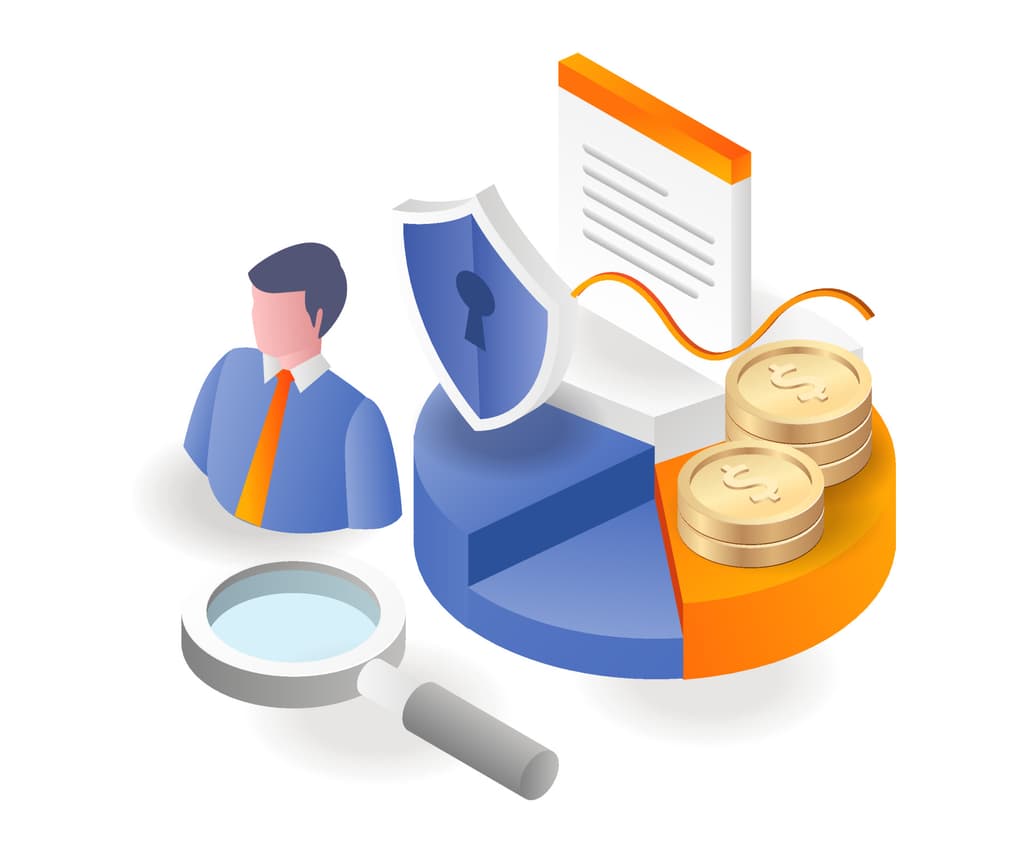Securing Your Financial Future: Protecting Your Assets

Introduction: Think of your financial assets like precious family heirlooms - they need proper safekeeping and care to maintain their value for generations. In today's complex financial landscape, protecting your wealth requires strategic planning and informed decisions.
Table of Contents:
Understanding Financial Asset Security
Basic Principles
Financial security starts with understanding your assets and their vulnerabilities. This includes liquid assets like cash, semi-liquid investments, and fixed assets.
Risk Assessment
Evaluate potential threats to your wealth, from market volatility to cybersecurity risks. Regular risk assessments help maintain appropriate protection levels.
Traditional Banking Solutions
High-Yield Savings Accounts
These accounts offer FDIC protection up to $250,000 while providing better returns than standard savings accounts.
Certificate of Deposits (CDs)
CDs provide guaranteed returns and federal insurance protection, making them ideal for conservative investors.
Investment Diversification Strategies
Portfolio Allocation
Spread investments across various asset classes to minimize risk exposure. Consider stocks, bonds, commodities, and alternative investments.
Market Risk Management
Implement hedging strategies and regular portfolio rebalancing to maintain desired risk levels.
Digital Asset Protection
Cybersecurity Measures
Implement strong passwords, two-factor authentication, and encrypted storage for digital financial records. Use reputable password managers and regularly update security protocols.
Digital Banking Safety
Enable account alerts, use secure networks, and regularly monitor transactions. Consider dedicated devices for financial transactions.
Legal Protection Mechanisms
Trust Structures
Establish appropriate trusts to protect assets from creditors and ensure efficient wealth transfer. Options include:
- Revocable living trusts
- Irrevocable trusts
- Asset protection trusts
Business Entity Formation
Structure businesses to separate personal and business assets. LLCs and corporations provide liability protection.
Insurance Solutions
Liability Coverage
Maintain comprehensive insurance coverage:
- Umbrella insurance
- Professional liability insurance
- Property insurance
- Life insurance
Risk Management
Regular policy reviews ensure adequate coverage as assets grow.
Retirement Account Security
Account Types
Maximize protection through:
- 401(k) plans
- IRAs
- Pension plans
ERISA Protection
Understand federal protections for retirement accounts under ERISA laws.
International Asset Protection
Offshore Considerations
Evaluate legitimate offshore options:
- International banking
- Foreign trusts
- Global investment opportunities
Compliance Requirements
Maintain transparency with tax authorities and follow reporting requirements.
Estate Planning Essentials
Documentation
Essential estate planning documents:
- Will
- Living trust
- Power of attorney
- Healthcare directives
Regular Updates
Review and update estate plans every 3-5 years or after major life events.
Real Estate Protection Strategies
Property Titling
Choose appropriate ownership structures:
- Joint tenancy
- LLC ownership
- Trust ownership
Insurance Coverage
Maintain comprehensive property insurance and consider umbrella policies.
Conclusion
Securing financial assets requires a multi-faceted approach combining traditional safeguards with modern protection strategies. Regular review and updates of your protection strategy ensure continued effectiveness as your financial situation evolves. Remember that professional guidance from financial advisors, legal experts, and tax professionals can help optimize your asset protection plan.
FAQs:
- How much money should I keep in a single bank account? Consider keeping within FDIC insurance limits ($250,000 per depositor, per bank). For larger amounts, spread funds across multiple institutions.
- What's the safest way to protect digital financial records? Use encrypted cloud storage, enable two-factor authentication, and maintain secure offline backups of important documents.
- Should I consider offshore banking for asset protection? While offshore banking can offer additional protection, carefully evaluate tax implications and ensure compliance with reporting requirements.
- How often should I review my asset protection strategy? Conduct annual reviews and reassess after major life events or significant changes in financial situation.
- What role does insurance play in asset protection? Insurance provides essential protection against unforeseen events. Consider umbrella policies for comprehensive coverage beyond standard insurance limits.
- How can I protect my business assets from personal liabilities? Maintain clear separation between personal and business finances, establish appropriate business entities, and maintain comprehensive insurance coverage.
- What are the benefits of trust structures for asset protection? Trusts can provide tax efficiency, privacy, protection from creditors, and control over asset distribution while avoiding probate.
- Should I consider cryptocurrency as part of my asset diversification? Evaluate cryptocurrency investments carefully, considering security measures, volatility risks, and maintaining appropriate portfolio allocation percentages.
- How can I protect my inheritance from future claims? Consider trust structures, prenuptial agreements, and maintaining clear documentation of inherited assets separate from marital property.
- What role do tax strategies play in asset protection? Strategic tax planning helps preserve wealth through legitimate deductions, credits, and structuring while maintaining compliance with tax laws.
Remember to consult qualified professionals for personalized advice tailored to your specific financial situation and goals.
Similar News
See All


